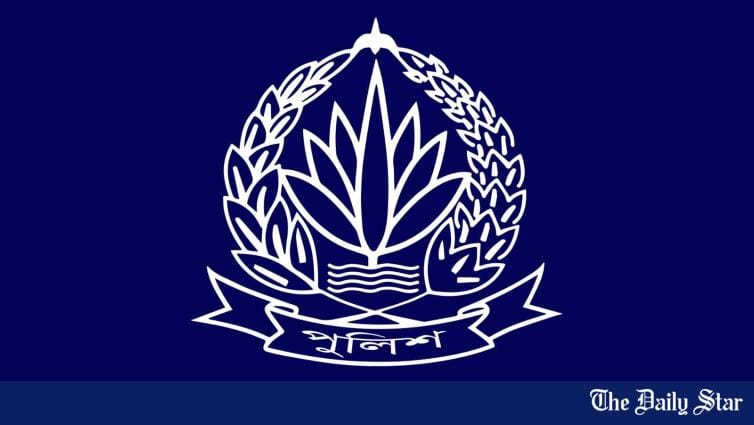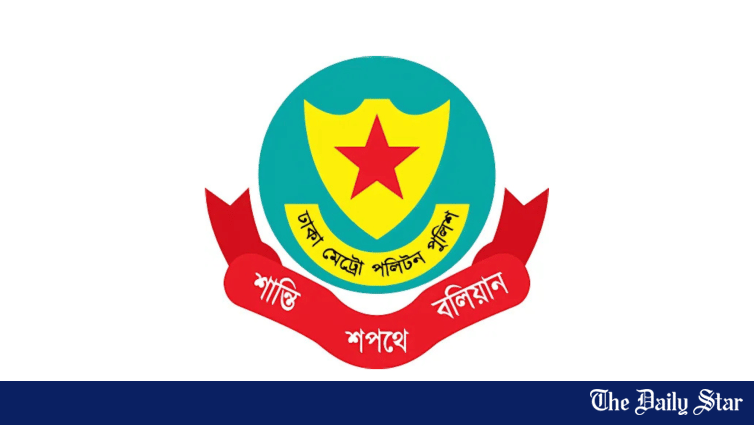- Copy to clipboard
- Thread starter
- #106
Saif
Senior Member
- Messages
- 14,180
- Reaction score
- 7,457
- Origin

- Residence

- Axis Group


Police logo set to be changed
As part of a series of initiatives to “open up” the police following the changeover in power, the force will now change its logo. Police Headquarters has already informed all units of the change in the logo through a letter. The “final” design will drop the sailboat feature
Police logo set to be changed
bdnews24.com
Published :
Apr 11, 2025 15:52
Updated :
Apr 11, 2025 15:52

As part of a series of initiatives to “open up” the police following the changeover in power, the force will now change its logo.
Police Headquarters has already informed all units of the change in the logo through a letter. The “final” design will drop the sailboat featured prominently in the previous one.
The letter signed by the additional DIG (logistics) Nasima Begum of Police Headquarters on Thursday said, "In view of the decision taken to change the existing monogram/logo of Bangladesh Police, a new monogram/logo has been finalised. It has already been approved by the authorities and is awaiting an official notice."
The new logo will feature the national flower – the water lily. On either side of the lily will be a garland of wheat and paddy sheaves, the upper parts of which will be connected by three jute leaves. The word 'Police' will be written in Bengali at the bottom.
Police Headquarters has requested districts and units to prepare to change to the new logo for use in flags, signboards, uniforms and other items used by law enforcers so that it can be implemented properly as soon as the notification is issued.
The current police logo was finalised in 2009 after the Awami League came to power.
After Sheikh Hasina was ousted in the face of a student-led mass movement on Aug 5, police personnel were attacked in different parts of the country. The law enforcers refused to return to work for some time out of fear amid the lack of security. Later some returned to their police stations in plainclothes.
These returning officers expressed their anger over different issues and made an 11-point list of demands.
On Aug 11, the then home affairs advisor to the interim government met with representatives of the police personnel on strike at the Secretariat. In the meeting, they were assured that police uniforms would be changed according to their demands.
The next day, Police Headquarters formed a committee to change the uniform and logo of the force.
Home Affairs Advisor Jahangir Alam Chowdhury spoke about the changes in the police uniform on Jan 20.
After a meeting at the Secretariat that day, he told the media: "The decision to change the uniform has been made. For the police, for the RAB and the Ansar. Three uniforms have been selected. They will be implemented gradually. It cannot be done all at once."
At the start of the meeting, 18 police, Ansar and RAB personnel appeared wearing different uniforms. Three of them were later approved.
On Oct 3, the Police Reform Commission was formed under the leadership of former home affairs and public administration Secretary Safar Raj Hossain.
The report, submitted by the commission to Chief Advisor Muhammad Yunus on Jan 15 included 14 recommendations.
It emphasised the need to increase the impartiality and accountability of the police, including the formation of a separate police commission, and the need for radical changes in the use of force, and practices of detention, arrest and interrogation. At the same time, it recommended the formulation of laws to protect victims and witnesses and the reassessment of the need for RAB.
bdnews24.com
Published :
Apr 11, 2025 15:52
Updated :
Apr 11, 2025 15:52
As part of a series of initiatives to “open up” the police following the changeover in power, the force will now change its logo.
Police Headquarters has already informed all units of the change in the logo through a letter. The “final” design will drop the sailboat featured prominently in the previous one.
The letter signed by the additional DIG (logistics) Nasima Begum of Police Headquarters on Thursday said, "In view of the decision taken to change the existing monogram/logo of Bangladesh Police, a new monogram/logo has been finalised. It has already been approved by the authorities and is awaiting an official notice."
The new logo will feature the national flower – the water lily. On either side of the lily will be a garland of wheat and paddy sheaves, the upper parts of which will be connected by three jute leaves. The word 'Police' will be written in Bengali at the bottom.
Police Headquarters has requested districts and units to prepare to change to the new logo for use in flags, signboards, uniforms and other items used by law enforcers so that it can be implemented properly as soon as the notification is issued.
The current police logo was finalised in 2009 after the Awami League came to power.
After Sheikh Hasina was ousted in the face of a student-led mass movement on Aug 5, police personnel were attacked in different parts of the country. The law enforcers refused to return to work for some time out of fear amid the lack of security. Later some returned to their police stations in plainclothes.
These returning officers expressed their anger over different issues and made an 11-point list of demands.
On Aug 11, the then home affairs advisor to the interim government met with representatives of the police personnel on strike at the Secretariat. In the meeting, they were assured that police uniforms would be changed according to their demands.
The next day, Police Headquarters formed a committee to change the uniform and logo of the force.
Home Affairs Advisor Jahangir Alam Chowdhury spoke about the changes in the police uniform on Jan 20.
After a meeting at the Secretariat that day, he told the media: "The decision to change the uniform has been made. For the police, for the RAB and the Ansar. Three uniforms have been selected. They will be implemented gradually. It cannot be done all at once."
At the start of the meeting, 18 police, Ansar and RAB personnel appeared wearing different uniforms. Three of them were later approved.
On Oct 3, the Police Reform Commission was formed under the leadership of former home affairs and public administration Secretary Safar Raj Hossain.
The report, submitted by the commission to Chief Advisor Muhammad Yunus on Jan 15 included 14 recommendations.
It emphasised the need to increase the impartiality and accountability of the police, including the formation of a separate police commission, and the need for radical changes in the use of force, and practices of detention, arrest and interrogation. At the same time, it recommended the formulation of laws to protect victims and witnesses and the reassessment of the need for RAB.















